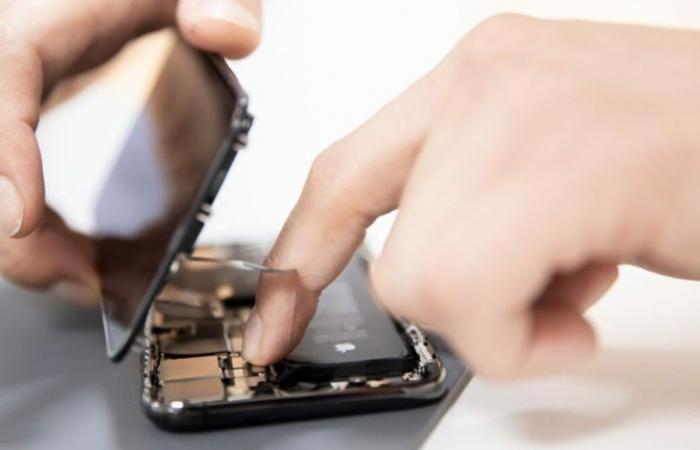Apple iPhone 16
In the absence of offers discover
See more offers
The links presented above may not work if you have an ad blocker.
Apple iPhone 16 Pro
In the absence of offers discover
See more offers
The links shown above may not work if an ad blocker is used.
Replacing iPhone batteries has always been a complex task, requiring specific tools and advanced technical skills. However, Apple, which is not in good spirits with the European Union, finally seems ready to meet its requirements regarding the repairability of electronic devices.
Apple is in fact working on an innovative technique, using electrical pulses to remove the batteries from their housing and facilitate their replacement. This method, called “electrically induced decoupling”, would separate the battery from the chassis by applying an electrical voltage. This change would require abandoning traditional aluminum in favor of stainless steel for the battery case, according to The Information website.
The iPhone 16, between hopes and challenges
Older generations of iPhones would probably not be compatible with this innovation, and the first device to benefit from it would be the iPhone 16, with a generalization planned for subsequent models.
While this technology promises to make battery replacement easier, several questions remain. Opening iPhones and removing internal components would still require authorized companies to avoid impacting the manufacturer’s warranty. In addition, this method could require new specific tools, thus limiting home repairs.
Changing battery materials could also impact the phones’ weight and heat dissipation. Apple will have to balance ease of repair with maintaining performance.
The urgency of complying with European standards
Pressure from the European Union plays a key role in this development. New legislation, planned for 2025, will require manufacturers to make batteries easily replaceable by consumers. Already accused of not respecting the DMA, Apple, by taking the lead, seems to want to transform this regulatory constraint into an opportunity to improve the repairability of its products, and redeem its image among public opinion.
Progress that the Apple brand should confirm at the start of the school year, in parallel with the presentation of the future iPhone 16.


